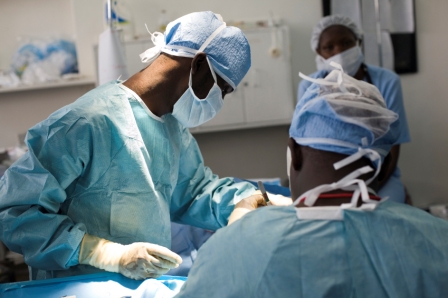The National Agency for Food and Drug Administration and Control (NAFDAC) has urged Nigerians and health workers to report any strange reactions from drugs, vaccines or medical devices to improve safety and prevent avoidable harm.
The agency made this known during a media chat on Tuesday in Lagos under the Saving Lives and Livelihood (SLL) project supported by several healthcare agencies.
Director of Pharmacovigilance, Dr Uchenna Elemuwa, said pharmacovigilance is central to drug safety and should not be ignored.
“Pharmacovigilance is the science and activities related to monitoring the safety of medicines. Different people react differently to drugs. This is why it is critical to educate the public and healthcare providers,” Elemuwa said.
She noted that the agency is currently working with the SLL project to strengthen hospital staff capacity and ensure all healthcare facilities integrate pharmacovigilance into their routine operations.
“It is no longer business as usual. Healthcare workers must prioritise patient safety and track reactions to medicines. We are building a system that holds stakeholders accountable,” she added.
Project Coordinator for SLL, Mrs Adeline Osakwe, stressed the need for public sensitisation.
“When people take herbal remedies, they are told it’s 100% safe, but as scientists, we know that’s not true. Even water can cause harm if misused,” she said.
She revealed that WHO expects Nigeria to submit at least 46,000 ADR reports annually. However, only 4,600 were recorded in 2024.
“That is barely 10%. The gap is huge. Unless we fix underreporting, we cannot move forward,” she said.
Country Health Scientist for SLL, Dr Segun Showande, added that Nigerians should report both drug reactions and therapeutic failures.
“We are working with NCDC, NPHCDA, and NAFDAC. If your drug doesn’t work or you have a reaction, report it,” he said.
Senior Medical Officer, NCDC, Dr Odianosen Eliakhamen said collaboration with communities and states would improve detection and reporting.
“The NCDC is committed to strengthening these systems with the support of the Federal Ministry of Health and other key stakeholders,” he said.
Deputy Director of Surveillance at the National Primary Health Care Development Agency (NPHCDA), Mr Abdulazeez Yaliya said vaccine safety was a national priority.
“When people see that we prioritise safety, they will trust the vaccination programme more. Our focus is on children under two and pregnant women,” he stated.






